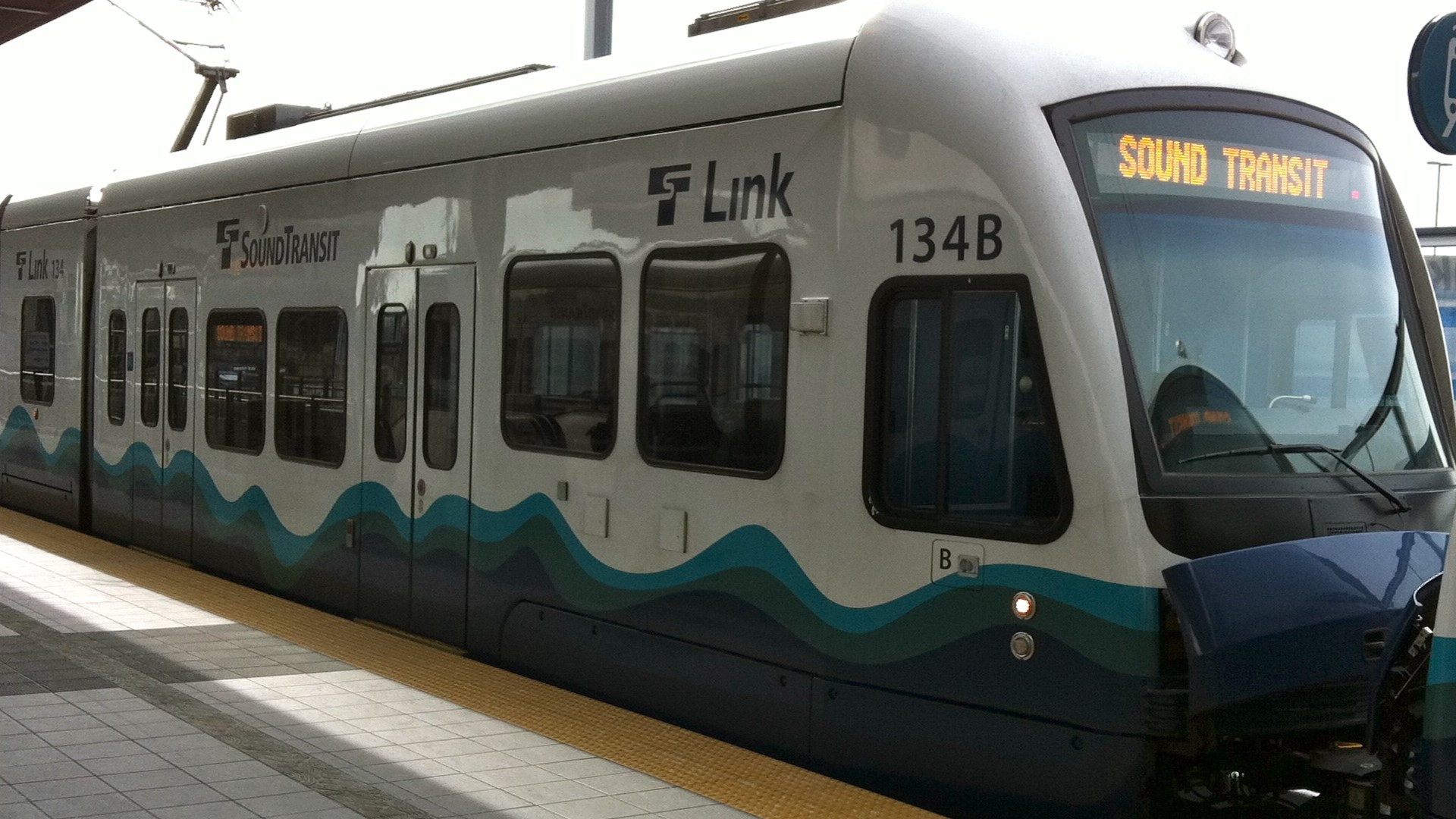Editor's note: The above video on Chinatown-International District residents concerned over Sound Transit expansion plans originally aired on May 20, 2022.
SEATTLE - Sound Transit said riders should prepare for “intermittent periods of less frequent service and replacement bus service" as the agency continues construction for maintaining and expanding light rail operations.
The first phase of Sound Transit's "Future Ready" construction plan began on Monday, July 11, and ends on July 24, causing train frequencies to be reduced to 20 minutes in each direction during all operating hours. All trains will be required to use a single track between Mount Baker and Tukwila as crews replace tile at the Columbia City Station.
The agency's project will extend the light rail system in every direction and double its size in the next three years. Sound Transit said these projects will position the light rail system for a transformative period of growth but will require passengers to monitor which periods will require planning ahead for longer travel times.
Besides expanding light rail operations, Sound Transit plans on prioritizing rail and station maintenance. This includes replacing nearly all escalators and elevators in the system and repairing rails for a smoother ride with fewer delays.
“We need to ensure that our system is ready for the major expansions ahead,” said Sound Transit Interim CEO Brooke Belman. “These projects will impact far fewer riders now than if we delayed them until after further expansions open."
Though the majority of posted travel impacts reduce train frequencies to every 20 minutes, one line will shut down between Rainier Beach and Tukwila International Boulevard for five days later this year. During this period, a Link bus shuttle will connect passengers between the two stations.
"While the disruptions that this work will cause are unavoidable, we will work hard to minimize the impact on service to our riders," Belman said. "The end result will be a safe and improved system ready for our next phase of growth.”
Sound Transit said travel will be impacted during the following days:
July 11-24 and Aug. 22 to Sept. 4: Train frequencies will be reduced to 20 minutes in both directions during all hours as crews replace tile at the Columbia City Station.
Oct. 21-23 and Nov. 11-13: Due to work in the downtown Seattle transit tunnel, train frequencies will be reduced to 20 minutes in each direction until 11 p.m. From 11 p.m. until the end of service, a bus shuttle will be available to connect passengers between Capitol hill and SODO stations.
Additional times of reduced service are expected for a five-day period in the third quarter of 2022, a period of at least three weeks in quarter four, and additional impacts in the first quarter of 2023.
Light rail expansion concerns
A Sound Transit committee held a special workshop on May 20 to discuss the multi-billion-dollar project that plans to provide light rail connections between West Seattle and Ballard.
People who live and work in Seattle's Chinatown-International District (CID), a neighborhood caught in the middle, raised concerns about how the construction and design could impact them.
Final decisions about the project are expected next year. The people that could be most impacted said it is all happening too fast.
Businesses in this neighborhood are sending letters, asking Sound Transit to extend the deadline and take more time to study the impacts in partnership with community stakeholders. If that does not happen, some in the neighborhood fear it will never be the same.
In a letter to Sound Transit, Uwajimaya, a nearly 100-year-old family business and anchor in the community, described Fifth Avenue as the neighborhood's cultural heart. In the letter, the business states, "the 5th Avenue alternative options would once again marginalize this important minority community."
A final decision from Sound Transit about which direction to go is not expected until next year. But in the neighborhood, some minds are already made up.
"Fifth Avenue is culture, Chinatown," said Lydia Lin, owner of Seattle Best Tea Co. in the CID. "We don't want to move anything."
According to Sound Transit, there will be opportunities for public comment when this issue comes to the Committee and Board for discussion and action this summer.

